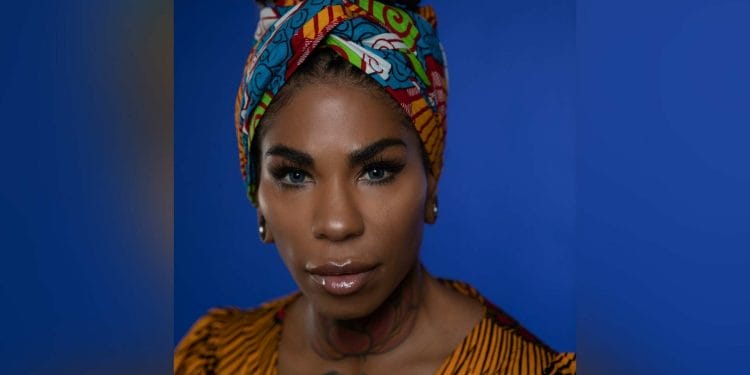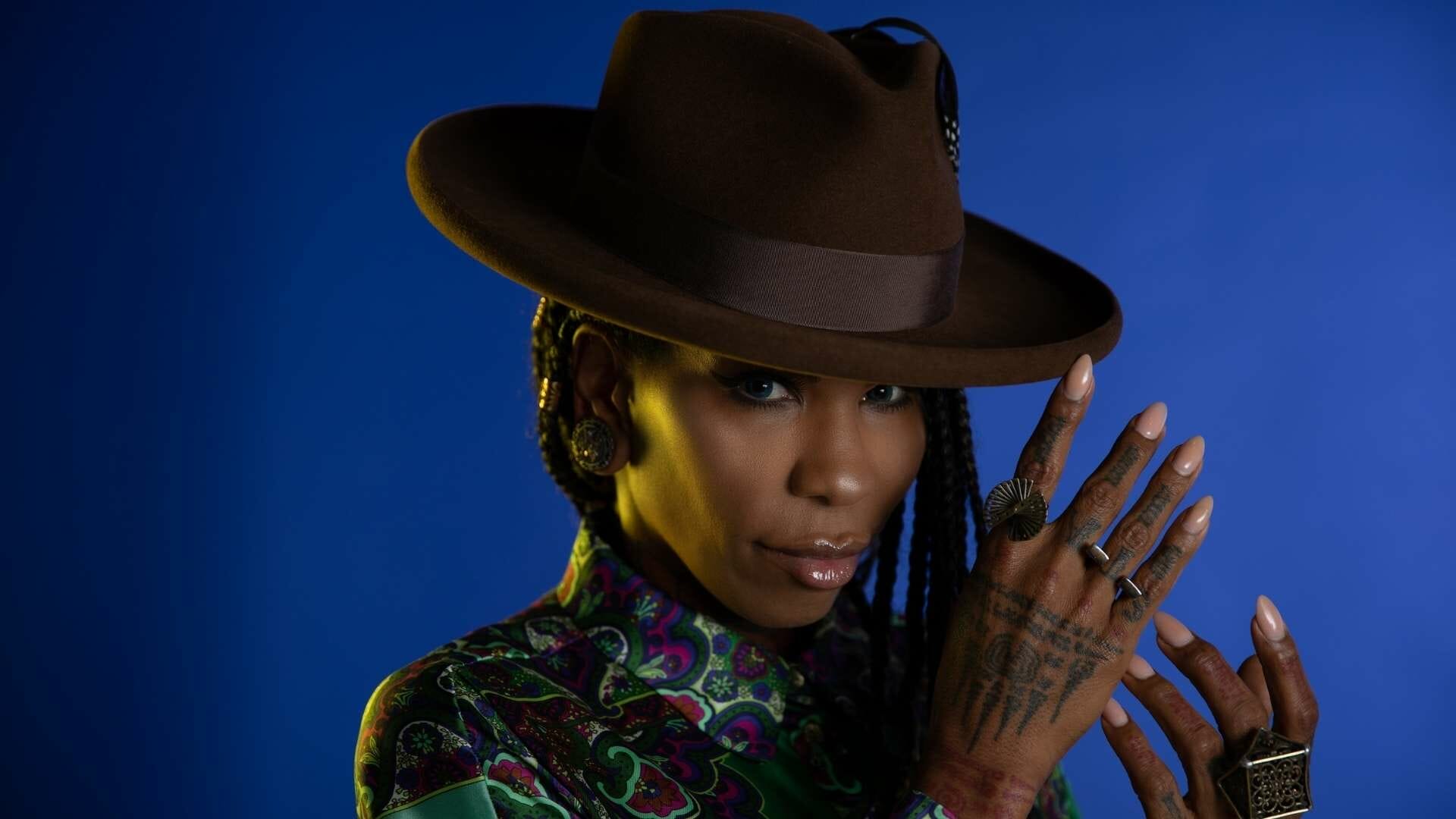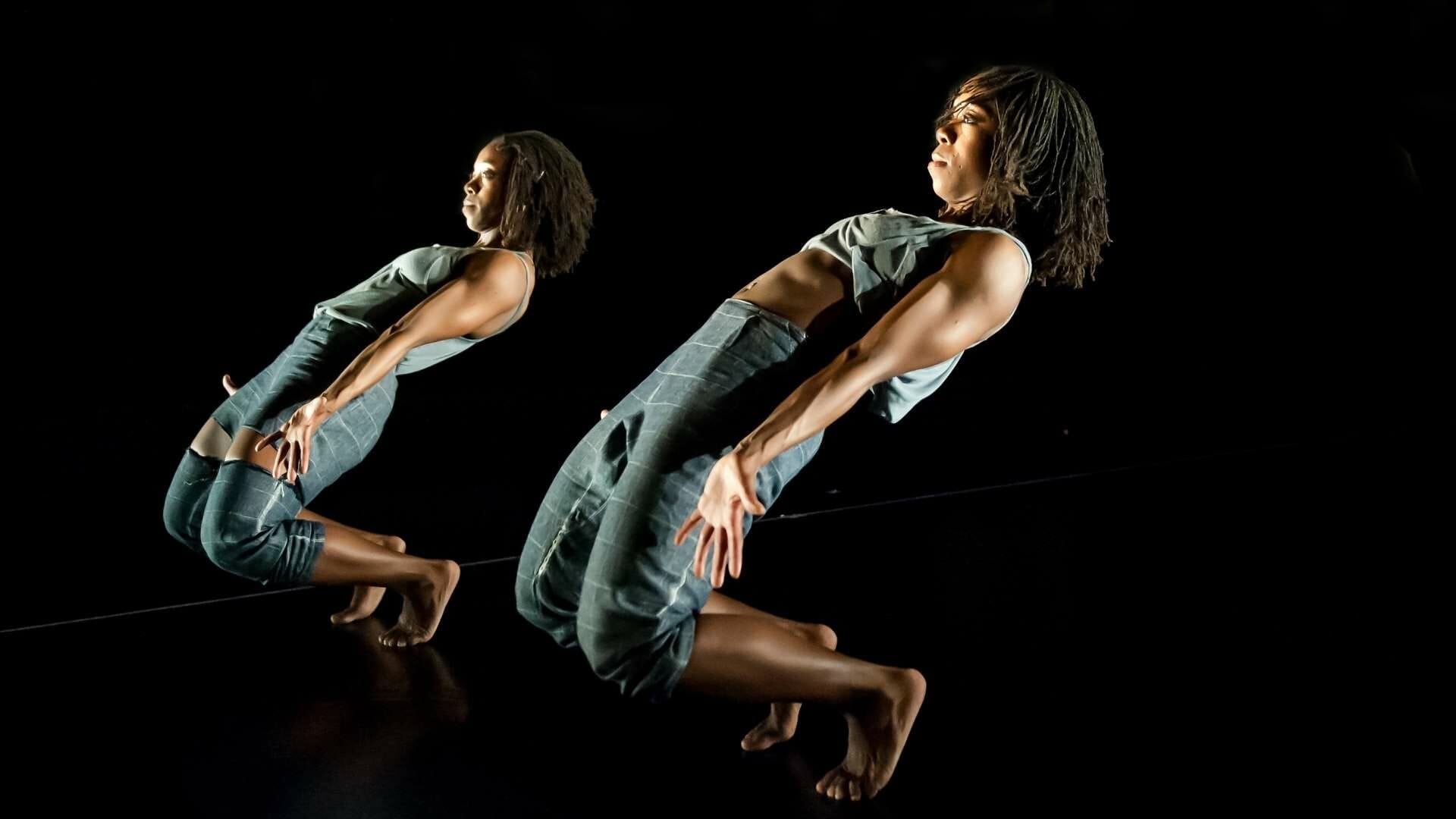Livia Kojo Alour a poet, musician and theatre maker who in a former life regularly graced international stages as sword swallower speaks out about the challenges and repercussions facing Black women who dare to ditch stereotypes in her frank and deeply personal debut solo show Black Sheep.
After moving from Germany to London over ten years ago to live and work in a more diverse community, Livia learned that life-long feelings of self-hatred and otherness are part internalised racism and part survival techniques. With a successful career under her former stage name MisSa but tiring of playing someone else full-time, Black Sheep has been long in the making, serving as a candid autobiographical work and a euphoric reclamation of Livia’s identity and ongoing fortitude.
Black Sheep will play Jackson’s Lane Arts Centre on 15th and 16th November 2022.
You’re touring Black Sheep and will stop off at London’s Jackson Lane in November, what can you tell us about your show?
Black Sheep is a story about finding love and belonging. It’s an autobiographical show about my personal experiences growing up Black in Germany disconnected from a diverse community, overcoming the hurdles of institutional racism and later building a new life in London U.K.
Black Sheep explores political theatre through an entertainment lens with storytelling and live music. During the show, the audience gets invited to have a deeper look into the life of Black women. Through the collective theatre experience of joy and pain in this piece, they will also find themselves represented as for example, most of us have gone through personal loss in some capacity. I hope that the audience walks away with a memory that resonates and inspires.
What inspired you to create Black Sheep?
I believe that more female Black British / European voices need to be heard. There are so many different stories. Sharing these is a great accelerator to create community and empathy for one and another that hopefully will lead to quicker change within society at large.
I used to be a full-time sword swallower. At the height of my circus career, I realised I was missing out on using a very important part of me: My voice. My bookers only cared about what my body was able to do – swallowing swords, doing the splits etc. I often felt isolated within casts I was in, due to my personal story being so different from most circus artists who I toured with and as well, I am a massive introvert.
I got labelled difficult, but no-one ever asked why I had my guard up and when I tried to be more vocal within the artistic creation process it mostly wasn’t welcome. I played my dedicated role. The diva, the pain proof Black woman and embraced it until it became a prison. My TEDx talk in 2017 was a pivotal moment. I was suddenly allowed to use my voice to talk about subjects important to me. This was the moment I decided to create my own show to speak up.
It’s a deeply personal show, what did you learn about yourself when you were writing it?
The first version of the show talked a lot about past experiences and focused on things that had been inflicted on me in the past, like micro aggressions for example. In the process of tweaking and rewriting the show I realised my personal longing – wishing that the creative process was more directed towards self-acceptance and caring less what people think of me. Now I also talk about how freeing and healing radical self-love is and what self-care for Black women could look like.
How does it feel sharing it with audiences and how have they reacted?
Every show has been different. People laugh and cry with me, sing along and I even had a heckler once. Some shows have been really quiet as people got so absorbed by the material. Other audience have been so involved that it nearly threw me off my lines! I prefer when there is some audience engagement because even though the subject matter is serious the show is still part entertainment. People are allowed to express their enjoyment.
You’re bringing us a mixture of physical theatre, spoken word and song, but you also have a collection of poetry as a sister project, can you tell us more about that?
When I started working on the show in 2019 I originally set out to write longer monologues. After a year of writing and editing I realised that the form had changed to spoken word. I welcomed this as I used to write a lot of poetry as a young adult and suddenly realised how much I’ve had missed this part of my expression.
When lockdown was announced I had the time to really dive into my writing practice and wrote almost every day for over a year. At the beginning of 2021 I had a book. The poetry collection touches deeper on each subject. Identity, racism, activism, love and spirituality. The reader takes the book home to experience it in their personal space, their living room or bedroom. They can re-read it and take all the time they need to delve into the material. They can experience it on their own terms.
What would you say to anyone thinking of booking tickets to see Black Sheep?
Come with an open mind and heart. This show is about learning how to feel comfortable in being uncomfortable – how to lean into radical venerability. And even though it’s a story told by a Black woman everyone will find parts that rings truth for themselves in it.
Black Sheep is also touring into 2023, full listings and ticket information can be found here.
https://youtu.be/QDUmV6bCzl4
















